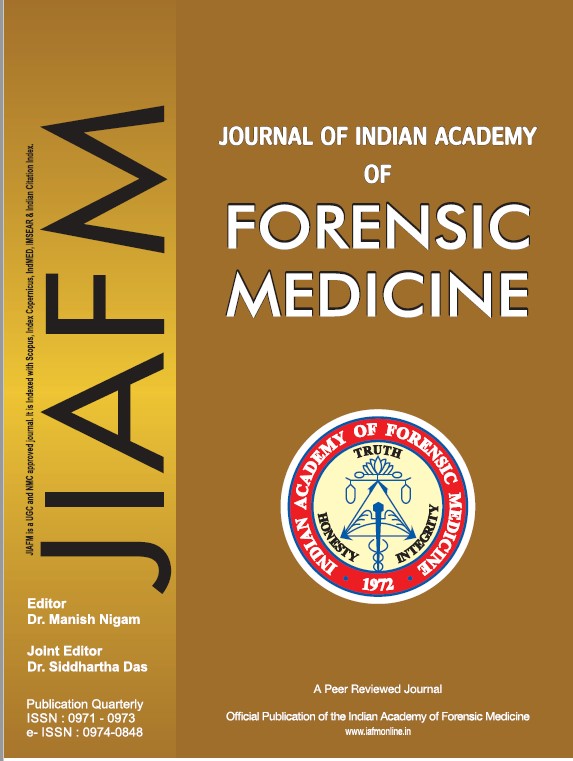Disclosure of a gunshot wound to the cranium on the basis of bone beveling and fracture pattern in a death alleged from railway track accident – A mystery unveiled
Keywords:
Ballistic, Gunshot, Wound, Fracture, BevelingAbstract
Misinterpretation and distortion of gunshot wounds to the head due to mutilation and disfigurement are not uncommon in forensic practice and they can wrongly designate the circumstances of death. The primary challenge in such cases is to approximate the bone fragments within the skull's anatomic silhouette so that the entry and exit sites created by the projectile can be correctly reconstructed. This is not an invariably easy task and is frequently accompanied by the fragmentation of the skull not only by the trauma itself but also due to taphonomic changes such as putrefaction and skeletonization. The soft tissues may be altered considerably by such processes while the fractured portions of the skull may not be available simultaneously due to scavenging, dispersal, or incomplete recovery. However, a proper understanding of the fracture mechanism in relation to ballistic trauma, especially the findings characterizing beveling over the projectile impact sites as well as along the relief fractures, may bring fruitful results even in highly challenging situations. A putrefied corpse belonging to a young, unknown male was found amongst bushes, in the vicinity of a railway track and alleged to die by blunt trauma sustained in a railway accident. A careful reconstruction of the available skull fragments however revealed fracture patterns and beveling typical of ballistic trauma. A preliminary evident railway track accident was ruled out by a scrupulous autopsy and crime scene details that surprisingly turned out to be a gunshot injury.


